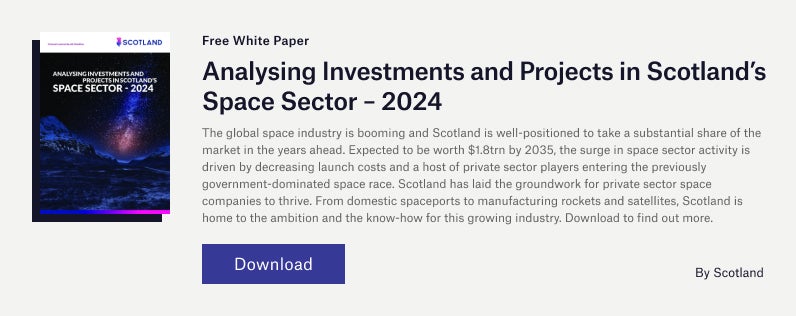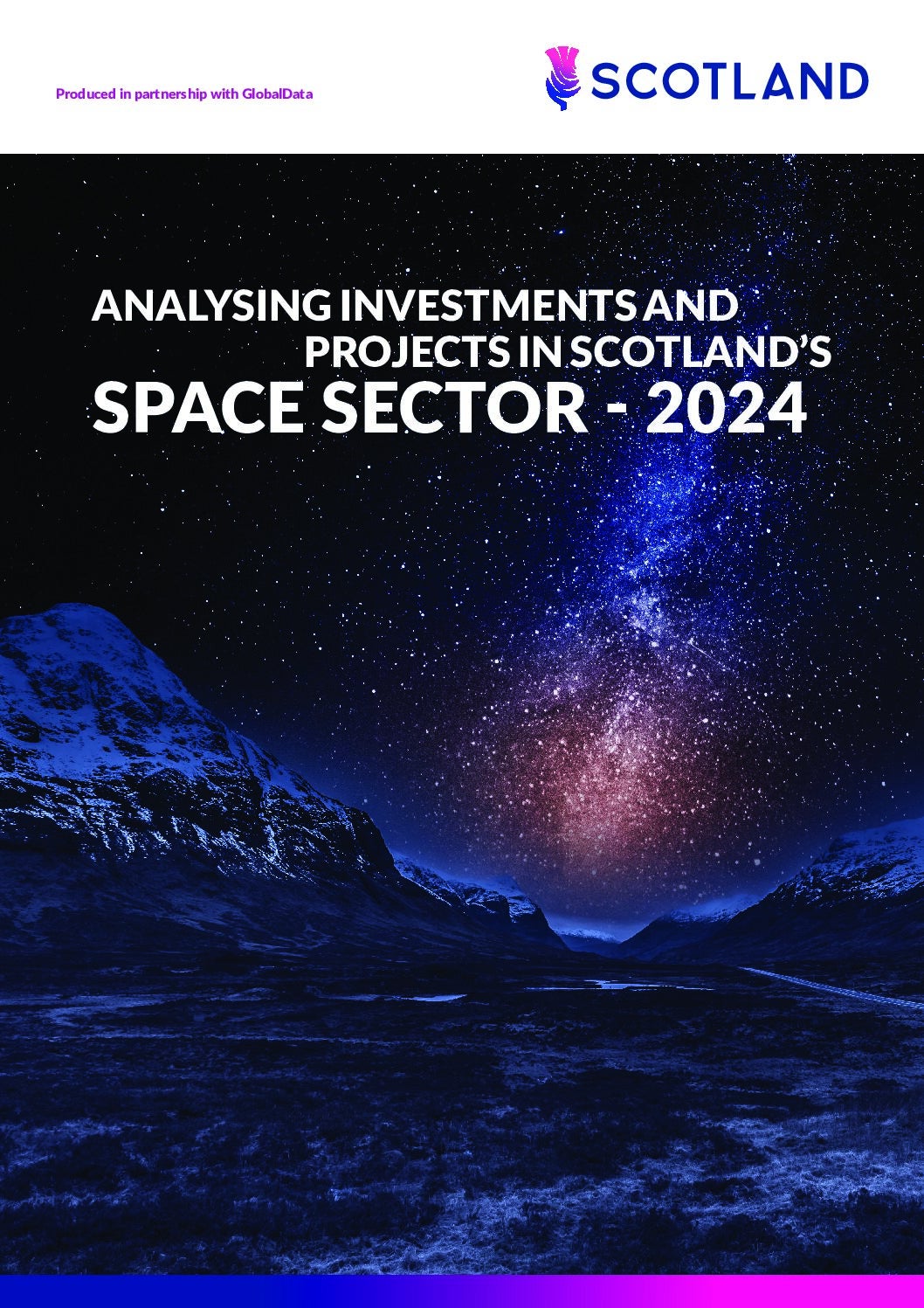
VC has the potential to fire up economies, create jobs, accelerate innovations that can be exported abroad and grow new industries – such as the space sector.
While public funds are restricted for furthering technological advancement and expanding industries, private capital is a lifeline for many young companies and enables them to scale up operations to achieve business growth and generate revenue.

Entrepreneurs seeking VC often have novel ideas that are capable of disrupting the status quo across various sectors including green energy, tech, health and life sciences, and space. Technologies developed through Industry 4.0, and the impending Industry 5.0, have only increased the rate of innovation and unleashed investment potential in untapped areas.
The potential for success is high, but investors want to be sure that they will see a return on their investments. Despite all the benefits that VC investment has to gain, it is not without its risks and there may be losses in the short term. However, there has been a notable change in investor behaviour in the past few years, with the mentality to ‘make a quick buck’ replaced by a more patient mindset focusing on greater returns in the long term.
Nevertheless, stability and certainty remain desirable for investors and any locations that offer these conditions are always going to be of interest.
A well-developed ecosystem, as is found in Scotland, can offer investors peace of mind while having the potential to deliver solid returns. KPMG analysis found that VC investment in Scottish start-ups surged in the third quarter of 2023, with a total of 28 deals amounting to £202m ($259.22m). This is the highest quarterly figure recorded since the post-pandemic booms of 2021 and 2022, illustrating the resiliency of the Scottish economy in the face of declining VC investment elsewhere.
Furthermore, the Scottish Government’s Global Capital Investment Plan is actively seeking to enhance connections with financial centres around the world.
Another significant factor working in Scotland’s favour is its world-class universities that deliver cutting-edge research and innovation, providing a more sheltered environment to develop and refine innovative technologies. Because the country is a relatively small market, it is an ideal testing ground for new products and services that can then be scaled and exported.
Scotland’s growing strengths in the space sector
One of Scotland’s growing new industries that is attracting international investment is its space sector, with the country leading the way in research and development (R&D) and cost-friendliness.
According to fDi Benchmark data, Scotland’s mix of high research quality and low operating costs means it ranks second worldwide behind New York City in terms of attractiveness as a location for aerospace and telecom manufacturing and aerospace R&D centres. Ranking according to these criteria even puts Scotland ahead of established US space centres such as Los Angeles and Houston.
The UK space sector is small yet highly significant, with global satellite services underpinning almost 18% of total UK gross domestic product. In terms of personnel, Scotland is the third-largest regional space centre in the UK behind London and the South East. A total of 8,568 people were employed across 183 organisations in Scotland in 2020–21, a 26% increase compared with 2017–18.
By 2030, Space Scotland expects to increase this workforce fivefold by attracting skilled people from adjacent sectors in Scotland. This will particularly appeal to global talent seeking a good quality of life, while the country’s universities are strong in space-related areas and provide a reliable line of fresh talent.
The plan is to transform Scotland into a globally recognised strategic location and a European leader for commercial space developments. Substantial growth is already evident, with Scotland’s contribution to total UK space industry income increasing by 30% from 2018–19 to 2022.
While the Scottish Government has committed significant funds to achieve space sector growth, private capital remains essential. However, when VC is combined with public funding, it reduces the overall risk of investments and can make it easier to raise higher amounts.
Space companies in Scotland have also received more than £48m in funding from the UK and Scottish governments, with a further £20m coming from the European Space Agency (ESA). Two start-ups – orbital launch services company Orbex and rocket company Skyrora – have received funding from the ESA’s Boost! initiative. Additionally, the Scottish National Investment Bank (SNIB) has invested or co-invested with other VC companies to support enterprises around Scotland.
Scottish satellite communications applications company Krucial received £1m in a funding round co-invested by the SNIB that opened the door for further VC investment. Innovate UK has also earmarked £1m to support organisations that are developing technologies that enhance the UK’s ability to operate safely in space.
International innovators entering the space race in Scotland
The notion of VC funding space start-ups wouldn’t have been conceivable three decades ago. Now, with a handful of headline-grabbing private space companies making history, entrepreneurs are boldly going where few have gone before.
“Technology is changing what is possible and acting as a disruptor across numerous industries, and Scotland’s vibrant tech scene is allowing entrepreneurs and start-ups access to industries that, years ago, may have had much higher barriers to entry – such as space,” explains Glenn Barklie, chief economist at Investment Monitor. “This means that private investors and companies are looking at VC in these promising start-ups and innovators more than ever before, opening up far more opportunities for growth and long-term return on investment.”
An international company that has recently set up Scottish offices specifically for the space sector is Rhea Space Activity (RSA). The US company develops technologies that address scientific challenges on a galactic scale. RSA developed the Jervis Autonomy Module for spacecraft navigation. JAM’s underlying algorithms enabled NASA’s Deep Impact mission to successfully manoeuvre a projectile into a comet at speeds of 22,000 miles per hour.
Another project RSA is working on aims to reactivate the Spitzer Space Telescope, which is currently 130 million miles away from Earth. The Spitzer-Resurrector mission would send a spacecraft with the necessary technology onboard to revive the decommissioned telescope and begin operations to gather more information about Near-Earth objects and far-flung galaxies.
RSA UK is based in Edinburgh and is collaborating with Heriot-Watt University to develop quantum communication systems. Notably, this year will see construction start on a Hub Optical Ground Station on campus at the University, which will bolster the capacity to develop and trial quantum satellite communications from Scotland.
VC helps launch Scottish start-ups
The entrance of entrepreneurs into the predominantly government-funded space economy has been driven by a drop in launch costs, once the primary barrier to entry.
fDi Benchmark data put Scotland first in the General Business Environment category for its aerospace manufacturing plant profile. Scotland’s supportive regulatory environment and funding opportunities all contributed to the country topping the list.
Key to this innovative growth economy in Scotland’s space sector is VC. Beyond Orbex and Krucial, space data company Spire and Alba Orbital, which builds PocketQube satellites, have received funding from London-based Seraphim Capital and California-headquartered Y Combinator, respectively. Mangata Networks, a rising telecommunications company based in London, and the University of the West of Scotland recently invested £10.5m to create 38 job opportunities in Scotland, with plans to increase these figures to £84m and 575 jobs in the long term.
Market growth in the space economy
Space remains a relatively niche field, but it is one where investments are often large when they are made.
Market estimates predict the global space economy will be worth between $760bn and $1trn by 2030 – and the investment has already started flooding in. In 2023, Space Capital’s database tracked $6.85bn in VC that flowed to space-related companies throughout the year.
According to GlobalData, one of the most significant elements of the new space economy will be the global military satellite market. Forecast to be worth $9.2bn in 2030, the market will grow at a compound annual growth rate of 1.3% between 2023 and 2030.
With the space economy expected to double over the next two decades, considerable effort is now seeing the stars starting to align for Scotland to secure a £4bn share of the global market by 2030.



